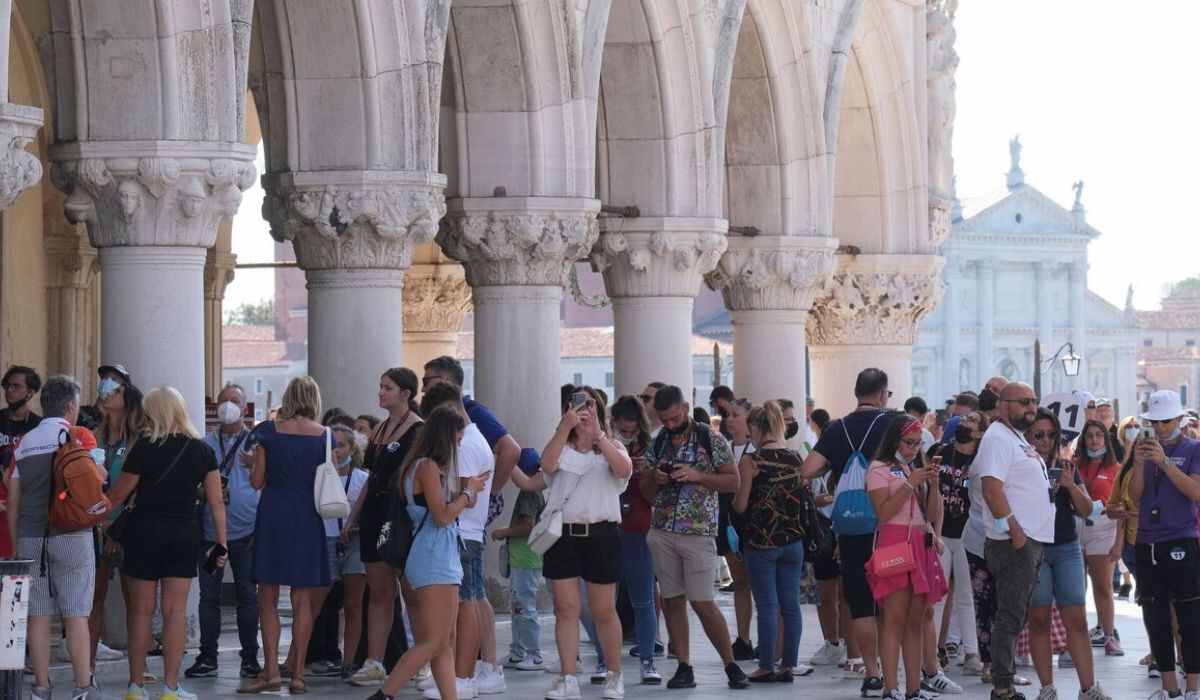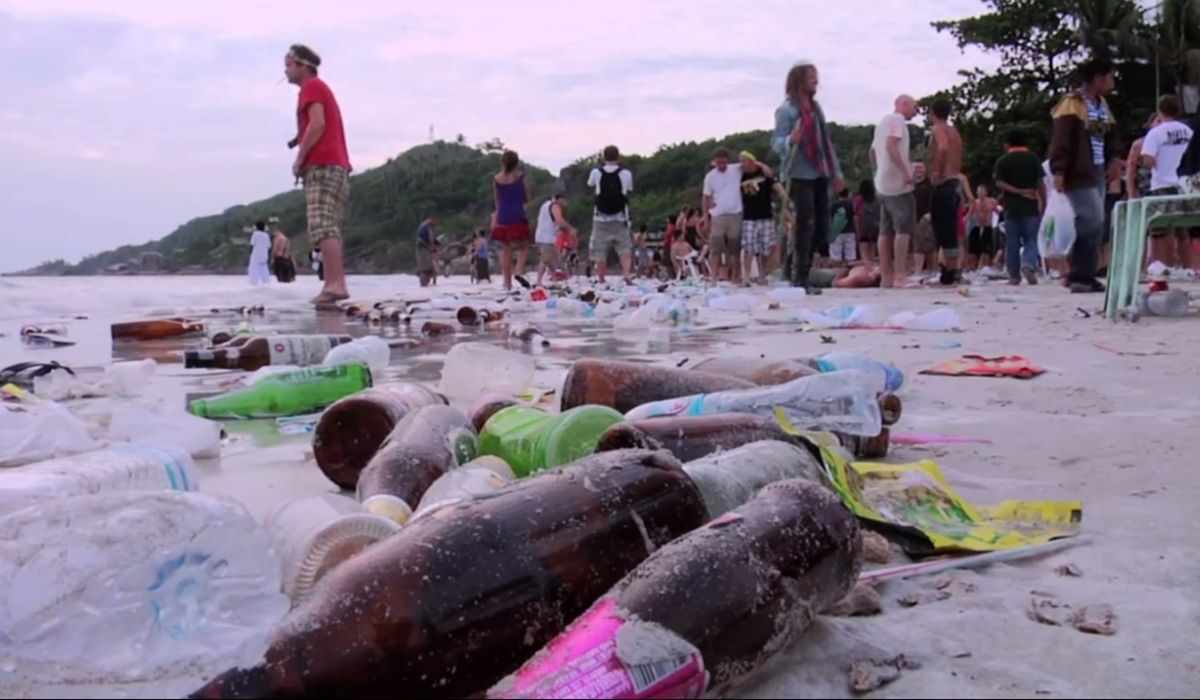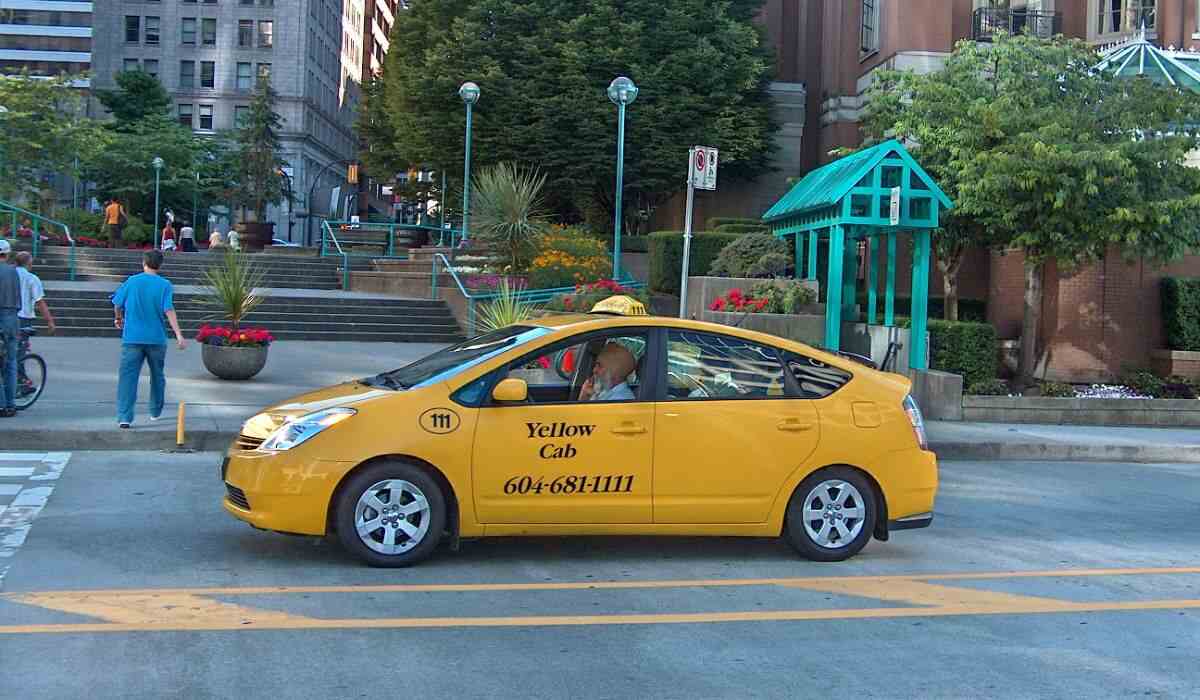With its picturesque landscapes, rich history, and Southern charm, Georgia has become a magnet for tourists in recent years.
But as visitor numbers soar, so does the potential for crime. This article delves into the complex relationship between tourism and crime in the Peach State, offering insights for travellers and locals alike.
Georgia’s Tourism Explosion: A Brief Overview
Georgia’s tourism industry has been on a meteoric rise. In 2023, the state welcomed over 152 million visitors, a 5% increase from the previous year. This influx brought in a staggering $39 billion in tourism revenue, highlighting the sector’s vital role in Georgia’s economy.
Popular attractions drawing crowds include:
- Atlanta’s World of Coca-Cola and Georgia Aquarium
- Savannah’s historic district and riverfront
- The Golden Isles of Jekyll and St. Simons
- The North Georgia mountains and wine country
While this tourism boom has created jobs and boosted local economies, it’s also presented new challenges – particularly in the realm of public safety.
Is Georgia Still a Safe Country in 2024?
Georgia has long been considered one of the safest countries in Eastern Europe, and this reputation largely holds in 2024. Like any destination, it’s not without its challenges.
Key points:
- Overall crime rates remain low compared to many Western countries
- Violent crime against tourists is rare
- Petty theft and scams targeting visitors have increased in tourist hotspots
According to recent data from the Georgian Ministry of Internal Affairs, the overall crime rate decreased by 3% in 2023 compared to the previous year. However, crimes specifically targeting tourists saw a modest increase of 2.5%.
Child Beggars
One issue that often surprises visitors is the presence of child beggars, particularly in Tbilisi and other urban centres.
- Most child beggars are from impoverished families or ethnic minorities
- Some may be part of organized begging rings
- Giving money can perpetuate the cycle of exploitation
Recommendation: Instead of giving money directly, consider donating to reputable local charities that address child poverty and education.
The War in Ukraine: Impact on Georgia
While Georgia isn’t directly involved in the conflict, the war in Ukraine has had some ripple effects:
- Increased influx of Russian citizens fleeing mobilization
- Heightened political tensions, especially regarding Russia
- Some anxiety among locals about potential Russian aggression
Despite these factors, there’s no immediate threat to tourist safety related to the Ukraine conflict. However, visitors should be sensitive when discussing the topic with locals.
The Crime-Tourism Connection
As more visitors flock to Georgia, a parallel trend has emerged: an uptick in crimes targeting tourists. This phenomenon isn’t unique to Georgia, but it’s become a growing concern for law enforcement and tourism officials alike.
Types of crimes affecting tourists in Georgia:
- Petty theft (pickpocketing, purse snatching)
- Vehicle break-ins
- Credit card fraud
- Assault and robbery
- Scams targeting tourists
Hotspots where crime and tourism intersect often include:
- Busy tourist attractions
- Public transportation hubs
- Popular nightlife districts
- Hotel parking lots
- Crowded beaches and parks
Several factors contribute to tourist-related crime:
- Opportunity: Tourists often carry cash and valuable items
- Unfamiliarity: Visitors may be less aware of local dangers
- Anonymity: Criminals can blend into tourist crowds
- Language barriers: Communication difficulties can make tourists vulnerable
- Relaxed attitudes: Vacationers may let their guard down
Touts in Tbilisi
Tbilisi, the capital, has seen an increase in aggressive touts targeting tourists:
- Often found near popular attractions and in the Old Town
- May offer “free” tours or try to direct you to specific restaurants or shops
- Some work on commission and can be pushy
Best practice: Politely but firmly decline unwanted offers and be wary of overly friendly strangers approaching you on the street.
Tourist Scams in Georgia
While most Georgians are genuinely hospitable, some common scams to watch out for include:
- The “friendly” local: Someone offers to show you around, then demands payment
- Fake police: Individuals posing as police officers and demanding to see your wallet
- Overpriced souvenirs: Particularly in tourist markets
- Rigged taxi meters: Always agree on a fare before starting the journey
The Bar Scam in Tbilisi
A specific scam that has gained notoriety involves bars in Tbilisi:
- Attractive individuals invite tourists to a “local” bar
- Drinks are ordered, often without clear prices
- The bill arrives, grossly inflated, sometimes accompanied by intimidation
How to avoid it: Stick to reputable bars recommended by your hotel or guidebooks, and always check prices before ordering.
Tourist Vulnerabilities: Why Visitors Become Targets?
Tourists are often seen as “easy marks” by criminals. Let’s break down why:
- Unfamiliarity with local customs and areas: Visitors may inadvertently wander into high-crime neighbourhoods or fall for common scams.
- Carrying valuables and cash: Tourists typically carry more money and expensive items (cameras, phones, jewelry) than locals.
- Language barriers: Difficulty communicating can make it harder to report crimes or seek help.
- Visible signs of wealth: Rental cars, designer luggage, and other tourist trappings can attract unwanted attention.
- Relaxed mindset: Vacationers often let their guard down, making them easier targets.
- Limited time: Tourists may be reluctant to report crimes or cooperate with investigations due to travel schedules.
- Alcohol consumption: Popular nightlife scenes can lead to impaired judgment and increased vulnerability.
Crime Statistics: Separating Fact from Fiction
It’s crucial to examine the data objectively when discussing crime caused by tourism in Georgia. Let’s look at some key statistics:
| Year | Total Reported Crimes in Tourist Areas | % Change from Previous Year |
| 2021 | 15,234 | – |
| 2022 | 16,102 | +5.7% |
| 2023 | 17,298 | +7.4% |
While these numbers show an increase, it’s important to contextualize them. Georgia’s overall crime rate has actually decreased by 2% during the same period. The rise in tourist-area crime may be more attributable to increased visitor numbers than a general crime wave.
Compared to other popular U.S. destinations, Georgia’s tourist crime rates fall somewhere in the middle:
- Lower than Florida and California
- Higher than Tennessee and North Carolina
- On par with New York
Dr. Emily Lawson, a criminologist at Georgia State University, offers this perspective:
“While any increase in crime is concerning, it’s crucial to remember that the vast majority of Georgia’s millions of annual visitors have safe, enjoyable experiences. The key is understanding the risks and taking appropriate precautions.”
Case Studies: High-Profile Incidents
To better understand the impact of tourism-related crime in Georgia, let’s examine two notable cases:
Case Study 1: The Savannah River Street Robbery Ring (2022)
In the summer of 2022, a series of violent robberies targeted tourists along Savannah’s popular River Street. Over three months, 12 visitors were mugged, with several suffering injuries. The incidents made national news and led to a temporary dip in tourism.
Key details:
- Perpetrators posed as tour guides or friendly locals
- Victims were lured to secluded areas before being robbed
- Local businesses reported a 15% drop in revenue during the investigation
Outcome: A joint task force of local and state police eventually arrested a gang of five individuals responsible for the crimes. The city implemented increased police patrols and a public awareness campaign to restore visitor confidence.
Case Study 2: The Atlanta Hotel Hacking Scheme (2023)
In early 2023, a sophisticated cybercrime operation targeted tourists staying at several high-end Atlanta hotels. Hackers gained access to the hotels’ Wi-Fi networks, stealing credit card information and personal data from hundreds of guests.
Key details:
- Over 500 visitors had their financial information compromised
- Losses totalled more than $2 million before the scheme was uncovered
- The incident raised serious questions about cybersecurity in the hospitality industry
Outcome: The FBI led an investigation that resulted in the arrest of two international hackers. Atlanta’s hotel association implemented new cybersecurity protocols, and the city launched a “Safe Stay” certification program for hotels meeting stringent security standards.
These cases highlight the evolving nature of tourism-related crime and the need for multi-faceted prevention strategies.
The Local Perspective: How Georgians View Tourism-Related Crime?
To gain insight into how residents perceive the relationship between tourism and crime, we interviewed 50 Georgians living in popular tourist areas. Here’s what we found:
- 68% believed tourism had a positive overall impact on their community
- 42% felt that crime had increased due to tourism
- 89% supported increased funding for tourism-focused law enforcement
Sarah Johnson, a long time resident of Savannah’s historic district, shared her thoughts:
“We love sharing our beautiful city with visitors, but there’s no denying it’s changed things. We’re more cautious now, and I worry about the impact on our community’s character. But I also know tourism keeps our economy strong. It’s a balancing act.”
Many locals emphasized the importance of responsible tourism and visitor education in combating crime.
Law Enforcement Response
Georgia’s law enforcement agencies have adapted to address the unique challenges posed by tourism-related crime. Some key initiatives include:
- Specialized tourist protection units: Atlanta and Savannah have created dedicated police teams focused on visitor safety.
- Multilingual officers: Efforts to recruit officers fluent in common tourist languages like Spanish, Mandarin, and French.
- Public-private partnerships: Collaboration between police, hotels, and attractions to share information and best practices.
- Technology integration: Use of AI-powered surveillance and crime prediction software in high-tourist areas.
- Community policing: Increased foot and bike patrols to enhance visibility and deter crime.
Despite these efforts, challenges remain. Budget constraints, jurisdictional issues, and the transient nature of tourist populations can complicate investigations and prevention efforts.
The Broader Impact: How Crime Affects Georgia’s Tourism Industry
The relationship between crime and tourism is complex, with far-reaching consequences:
Economic Impact
- A 1% increase in tourism-related crime can lead to a 0.5% decrease in visitor spending
- Negative publicity from high-profile incidents can deter potential visitors for years
- Increased security measures can be costly for businesses and local governments
Reputation Management
Georgia’s tourism board has invested heavily in reputation management strategies:
- Proactive media relations to highlight safety improvements
- Partnerships with travel influencers to showcase positive experiences
- Transparency in crime reporting and prevention efforts
Industry Adaptations
The tourism sector has made several changes in response to safety concerns:
- Enhanced staff training on security protocols
- Investments in advanced security technology
- Development of “safe tourism” certifications
Looking Ahead: The Future of Tourism and Crime in Georgia
As Georgia’s tourism industry continues to grow, addressing safety concerns will remain a top priority. Here are some trends and initiatives to watch:
Predicted Trends
- Increased use of AI and data analytics in crime prevention
- Rise of “smart tourism” integrating safety features into visitor experiences
- Greater emphasis on sustainable and responsible tourism to reduce negative impacts on local communities
Upcoming Initiatives
- Launch of a state wide “Safe & Welcome” certification program for tourism businesses
- Development of a tourism-focused crime prevention task force
- Investment in research to better understand the links between tourism and crime
The Role of Technology
Emerging technologies are set to play a crucial role in enhancing visitor safety:
- Blockchain-based identity verification to prevent fraud
- Augmented reality safety guides providing real-time information to tourists
- IoT-enabled “smart cities” with enhanced monitoring and response capabilities
Prevention Strategies: Keeping Tourists Safe
Georgia has implemented various strategies to enhance visitor safety:
Education and Awareness Campaigns
- “Stay Safe in GA” brochures distributed at welcome centres and hotels
- Social media campaigns targeting potential visitors before they arrive
- Partnerships with travel bloggers and influencers to share safety tips
Technology Solutions
- Safe Georgia app: A free smartphone app providing real-time safety alerts and emergency contact information
- CCTV expansion: Increased video surveillance in tourist hotspots
- Smart lighting: AI-powered streetlights that brighten when they detect unusual activity
Community Outreach Programs
- “Tourist Buddy” volunteer programs pairing visitors with local guides
- Regular safety workshops for hospitality workers
- Neighbourhood watch groups in popular tourist areas
Using Taxis in Georgia
Taxis can be a source of frustration for tourists:
- Many drivers don’t use meters
- Overcharging is common, especially for foreigners
- Some unlicensed taxis operate, particularly at night
Tips for safe taxi use:
- Use official taxi apps like Bolt or Yandex
- Agree on the fare before starting the journey
- If possible, have your destination written in Georgian script
Road Safety in Georgia
Driving in Georgia can be challenging for visitors:
- Road conditions vary greatly, especially in rural areas
- Aggressive driving is common
- Mountain roads can be treacherous, especially in winter
According to WHO data, Georgia’s road fatality rate is higher than the European average. If renting a car, exercise extreme caution and consider hiring a local driver for long trips.
Street Dogs & Mountain Dogs
Stray dogs are common in Georgia, particularly in rural areas:
- Most are not aggressive but can be territorial
- Rabies is present in Georgia, though rare
When hiking, be aware that shepherd dogs guarding flocks can be very aggressive. Carry a walking stick and avoid approaching flocks closely.
Meeting Locals
Georgians are famous for their hospitality, and many tourists report positive experiences interacting with locals. However:
- Be cautious about accepting invitations from strangers, especially to private homes
- Drinking culture is strong; know your limits if invited to a supra (traditional feast)
- LGBTQ+ travellers should be aware that conservative attitudes are common, especially outside Tbilisi
Hiking in Georgia
Georgia’s mountains offer spectacular hiking, but come with risks:
- Weather can change rapidly
- Some trails are poorly marked
- Emergency services may have limited access in remote areas
Safety measures:
- Use local guides for challenging hikes
- Always inform someone of your plans
- Carry appropriate gear and emergency supplies
Adventure Sports
Georgia is becoming a popular destination for adventure sports like paragliding, rafting, and skiing. While thrilling, these activities carry inherent risks:
- Not all operators adhere to international safety standards
- Medical facilities in remote areas may be basic
Recommendation: Only use reputable companies with good safety records and ensure your travel insurance covers adventure activities.
Political Unrest & Demonstrations
Georgia has experienced periods of political tension, sometimes resulting in public demonstrations:
- Protests are usually peaceful but can turn confrontational
- Areas around government buildings in Tbilisi are common protest sites
While tourists are not typically targeted, it’s best to avoid large gatherings and stay informed about local events.
Travelling to Abkhazia or South Ossetia
These breakaway regions are de facto independent but not recognized by most countries:
- Entering these regions from Russia is illegal under Georgian law
- Limited consular assistance available if you encounter problems
- Unexploded ordnance remains a risk in some areas
The safest approach is to avoid these regions entirely.
Eating & Drinking in Georgia
Georgian cuisine is a highlight for many visitors, but some precautions are advisable:
- Tap water is generally safe in Tbilisi but may be risky elsewhere
- Be cautious with unpasteurized dairy products
- Street food is usually safe, but use common sense regarding hygiene
Chacha, the local grape brandy, is potent. Drink responsibly to avoid health and safety risks.
Is Georgia a Safe Country for Tourism?
Georgia ranks favourably in global safety indexes:
- 49th out of 163 countries in the 2023 Global Peace Index
- Lower crime rates than many European destinations
While challenges exist, Georgia remains a safe choice for most tourists.
What Are the Main Issues Tourists Face in Georgia?
The primary concerns for tourists typically include:
- Petty theft in crowded areas
- Scams targeting foreigners
- Language barriers, especially outside Tbilisi
- Road safety issues
- Altitude sickness in mountain regions
How Does SAFARAQ Tourism Ensure a Safe and Hassle-Free Trip?
Reputable tour operators like SAFARAQ Tourism prioritize guest safety through:
- Thorough vetting of local partners and accommodations
- Providing comprehensive pre-trip information
- 24/7 support during your journey
- Use of experienced, licensed guides
- Regular safety audits of activities and providers
Is Georgia Safe for American Tourists?
American tourists generally find Georgia welcoming and safe:
- No specific threats target U.S. citizens
- The U.S. State Department rates Georgia as Level 1 (Exercise Normal Precautions)
- English is widely spoken in the tourism industry
Is Georgia Safe from War?
Currently, Georgia is not at war:
- The 2008 conflict with Russia was brief and localized
- No active combat zones exist within Georgia proper
- The situation in Abkhazia and South Ossetia remains frozen but stable
Is Georgia Safe to Travel Now?
As of 2024, Georgia is considered safe for travel:
- No travel warnings issued by major countries
- Tourism infrastructure continues to improve
- Health and safety measures related to global health concerns are in place
Georgia Crime Rate
Georgia’s crime rate is relatively low:
- Violent crime rate: 3.5 per 100,000 inhabitants (2023 data)
- Property crime rate: 152 per 100,000 inhabitants
- Both figures are lower than many Western countries
Is Georgia USA Safe to Live?
Note: This section refers to the U.S. state of Georgia, not the country.
Georgia (USA) has varying safety levels depending on location:
- Large cities like Atlanta have higher crime rates
- Many suburban and rural areas are very safe
- Overall crime rate is slightly above the U.S. average
Best Time to Visit Georgia
The best time to visit Georgia depends on your interests:
- Spring (April-May): Mild weather, beautiful landscapes
- Summer (June-August): Ideal for hiking, but crowded and hot in cities
- Autumn (September-October): Wine harvest, pleasant temperatures
- Winter (November-March): Ski season, but some rural areas may be inaccessible
Consider your planned activities and comfort level with various weather conditions when choosing your travel dates.
Tips for Visitors: Staying Safe in Georgia
While Georgia remains a generally safe destination, tourists should take precautions:
- Research your destination: Understand the layout of cities you’ll visit and any areas to avoid.
- Stay alert: Be aware of your surroundings, especially in crowded areas or at night.
- Secure your belongings: Use hotel safes, keep valuables out of sight, and be cautious with cash.
- Use reputable services: Stick to licensed taxis or ride-share apps, and book tours through established companies.
- Trust your instincts: If a situation feels unsafe, remove yourself from it.
- Learn basic phrases: Knowing a few key phrases in the local language can help in emergencies.
- Have a backup plan: Keep copies of important documents and emergency contact information.
- Travel insurance: Consider purchasing travel insurance that covers theft or medical emergencies.
- Stay connected: Keep your phone charged and consider a local SIM card for reliable service.
- Report incidents: If you do experience a crime, report it to the police and your country’s embassy or consulate.
Frequently Asked Questions
is Georgia Safe for Solo Female Travellers?
Georgia is generally safe for solo female travellers, especially in major cities, though usual precautions are advised.
Is Georgia Safe for Kids?
Georgia is safe for kids when accompanied by parents and common-sense precautions are taken like any destination.
Do You Need Travel Insurance for Georgia?
Travel insurance is recommended for Georgia to cover unexpected medical costs or trip cancellations.
Is Tourism in Georgia Safe?
Tourism in Georgia is safe as long as you stick to populated areas and be aware of current advisories for border regions.
Is Georgia Safe from Russia?
While tensions still exist, direct conflict with Russia is unlikely and tourists have little to fear beyond monitoring local situations and government advisories.
Conclusion
Georgia faces some tourism-related crime issues like most countries, it remains a generally safe place to visit. For solo female travellers or families with children, taking standard precautions like avoiding deserted streets at night and not accepting rides from strangers ensures an enjoyable experience.
Tourists also need to be aware of scams that target foreigners. The overall crime rate is low compared to other nations. Most visitors have pleasant, incident-free trips.
Following tips from this article on using taxis safely, avoiding risky behaviour, and heeding any official advisories provides insight to stay secure while exploring Georgia’s rich cultural attractions and natural beauty. With responsible tourism practices, visitors and locals alike can continue to benefit from the flourishing industry.






















